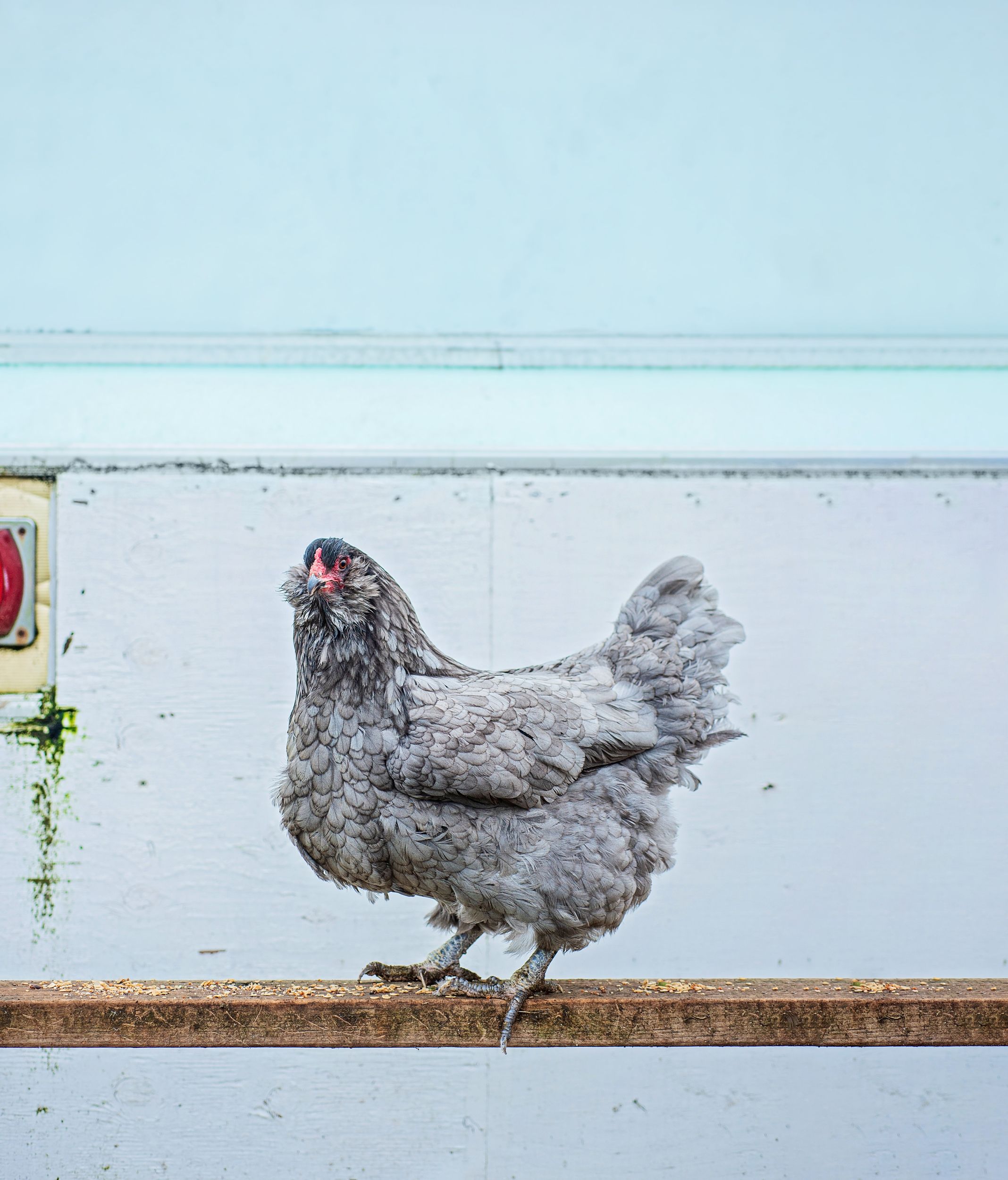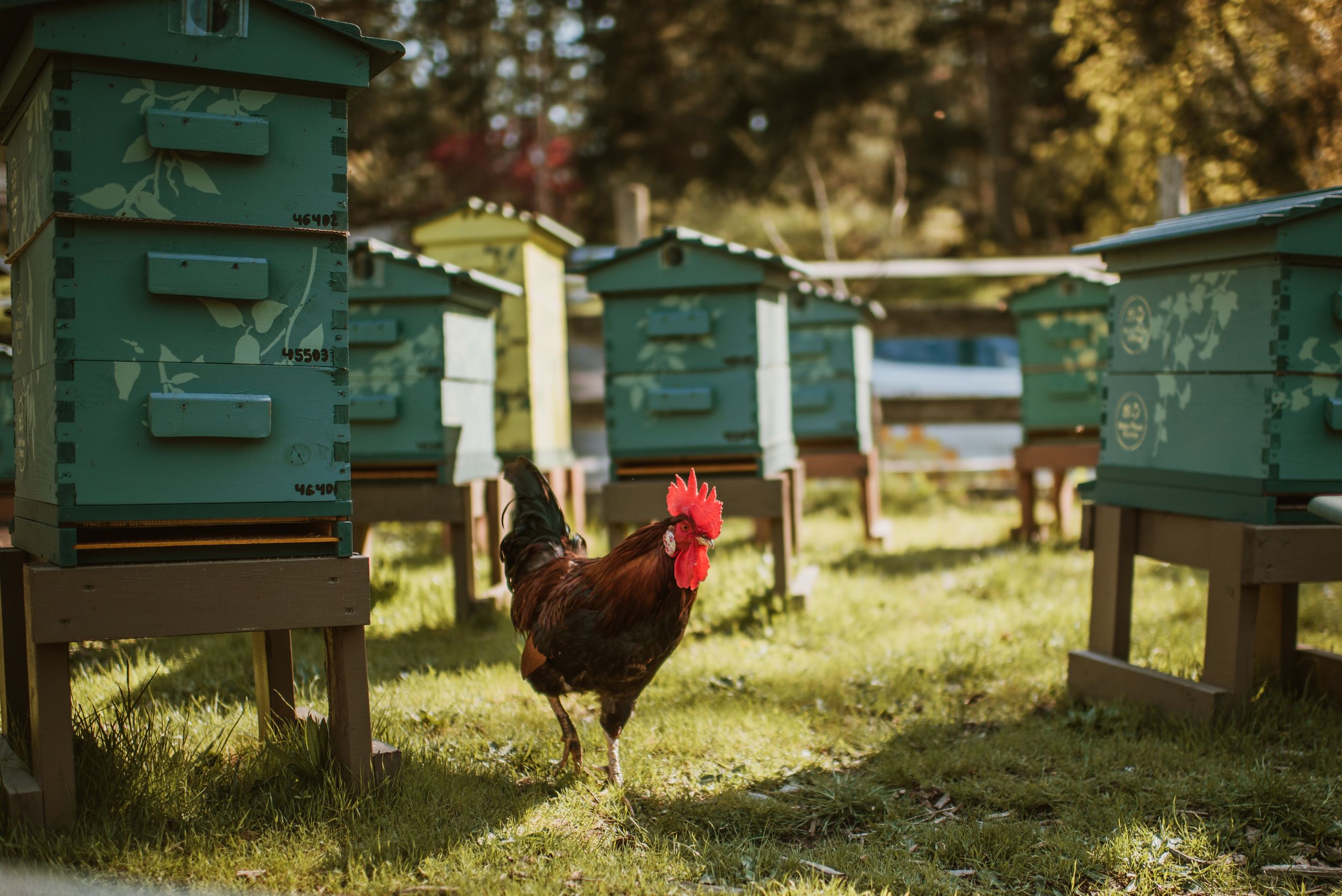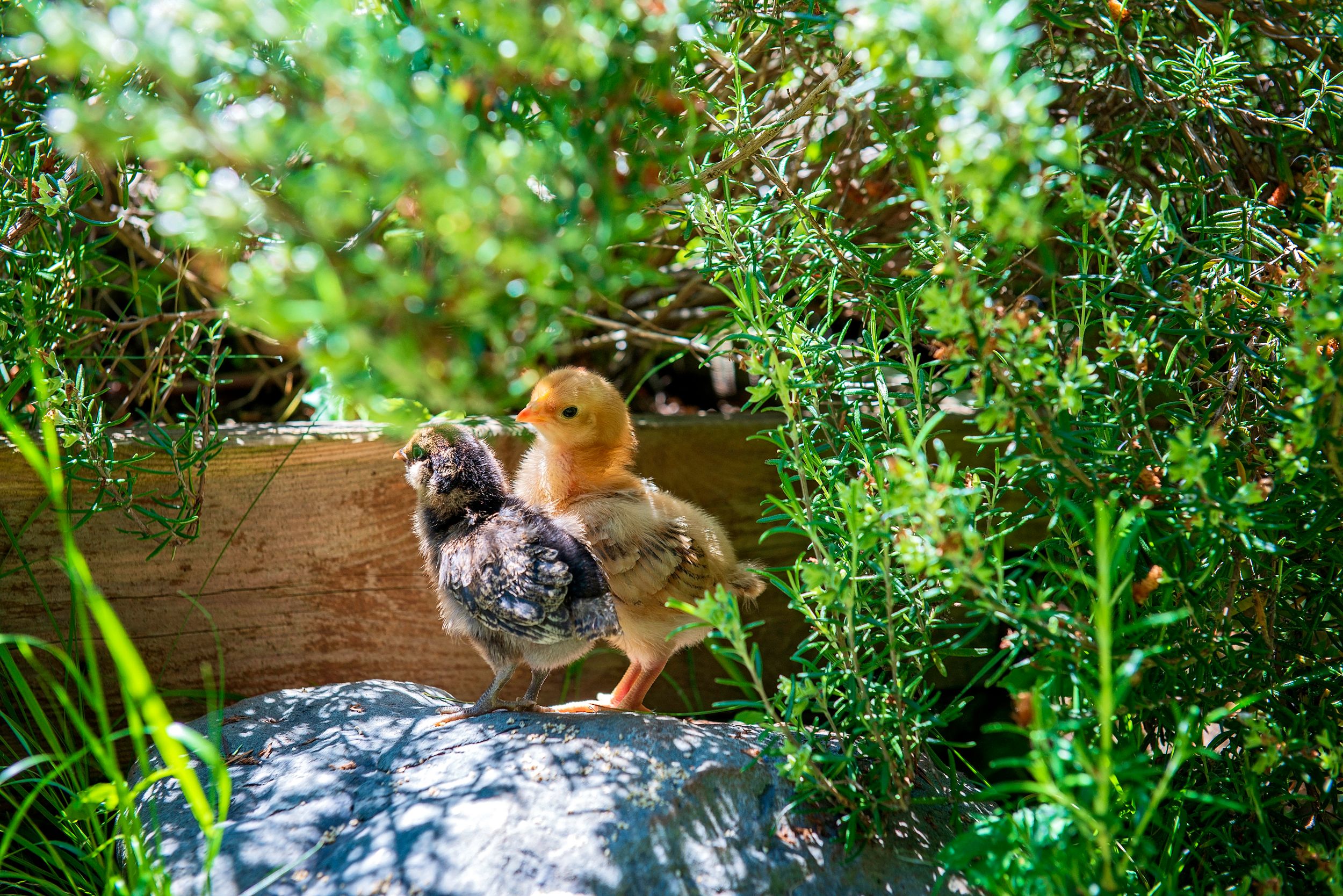Building Your Chicken Team
“Try before you buy” may be a trend in online clothes shopping, but on Vancouver Island, it’s also an option for raising chickens.
In 2015, as many municipalities began allowing residents to keep chickens in their backyards, Kate Fraser, who owns Bees Please Farms in Metchosin, launched a chicken rental service, enabling would-be owners to test the idea before committing to the birds long-term.
Clients of Fraser’s seasonal service, an affiliate of U.S.-based Rent the Chicken, rent two or four chickens, which she and her husband Mike deliver, along with a coop and other supplies, in April. Renters tend the hens through the summer, and Fraser picks them up in September.
New chicken owners often wonder, “What is my chicken doing? Is this normal?” says Fraser. If you’re considering adding chickens to your backyard garden, understanding the issues you might face and knowing what resources are available will streamline your experience.
Who You Gonna Call?
Fraser supplies a detailed instruction book to help her rental clients learn about their hens. Staff at Rent the Chicken headquarters also take phone calls to answer renters’ questions. The Vancouver Island Backyard Chickens and Ducks Facebook group provides a forum for Island chicken owners to ask questions, share knowledge, and buy, sell, or trade birds and supplies. And on the west coast, the Tofino Community Food Initiative previously organized “chicken socials,” where owners could swap information. Although these events have been paused for the time being, the organization may be able to connect you with other chicken raisers and local resources.
Secure Your Coop
 Protecting your chickens from predators is one of the most important issues owners face. “A good coop has to be predator proof, because raccoons are everywhere,” advises Fraser. “And if you’re really unlucky, you have mink in your area. They will try very hard to get in, and they will massacre everything.”
Protecting your chickens from predators is one of the most important issues owners face. “A good coop has to be predator proof, because raccoons are everywhere,” advises Fraser. “And if you’re really unlucky, you have mink in your area. They will try very hard to get in, and they will massacre everything.”
Consider other pets, too—both your own and your neighbours’—particularly when you allow your chickens to range outside their coop. Dogs can actually be a greater threat than cats, so supervise dogs closely, at least until you see whether they can co-exist with the chickens.
Plan for Chicken Care
Caring for chickens is not much more work than caring for cats, Fraser insists. “Cats pretty much look after themselves. You feed and water them and deal with their poop. Chickens are the same, except that you also get your breakfast from them.”
With deep golden yolks, the eggs from most backyard chickens who graze on grass, weeds, and bugs “look dramatically different from what you get in a store,” she notes. Even inside a coop, “they're mowing your lawn, picking your weeds, and getting the bugs there. Then you move the coop every two to three days, so that they're on fresh grass.”
Relocating the coop allows the chicken poop to decompose in the sun and fertilize your yard. “You can see where the coop has been, because the lawn is so vibrant from having that manure there.” Chickens are also good foragers, so as long as you watch them (perhaps when you’re enjoying your morning coffee outdoors), you can safely let them out of their coop to graze.
For many people, chickens become part of the family. “Chickens can recognize a hundred faces. If you feed them and your husband doesn't, they're going to follow you around and ignore him. They can tell the kids apart, who chases them and who doesn't, and who has treats in their pockets.”
Understand Your Chickens’ Life Cycle
Chickens follow a natural seasonal rhythm, beginning to lay eggs in the spring, increasing their output as the days lengthen, and pausing their laying in the fall. Most backyard chickens produce four to seven eggs a week during their laying season, says Fraser, although weather and other factors can affect their output. “Sometimes they'll go moody and take a couple of weeks off. Or if it gets quite hot, they might take a break and stop egg production.”
Chicken owners need to tend their birds through the winter, even though they’re not laying, which often makes seasonal renting appealing. As Fraser notes, “Not everybody wants to be a farmer when it's raining.”
Chickens typically lay eggs for two to three years, so plan what you’ll do with your hens once their laying years have passed. At Bees Please, Fraser says, “We call them the grandma chickens. We just let them live out their days.”

|
For More Information The British Columbia Society for the Prevention of Cruelty to Animals (BC SPCA) provides guidelines for raising backyard chickens and suggestions for enriching your chickens’ environment. The City of Victoria offers advice for local chicken owners as well. Another resource is BackyardChickens.com, which Rob Ludlow, co-author of Raising Chickens for Dummies and other chicken-related titles, maintains. For more details about the Rent the Chicken program on Vancouver Island, contact Bees Please Farms. They begin taking bookings in the fall for spring rentals. |




